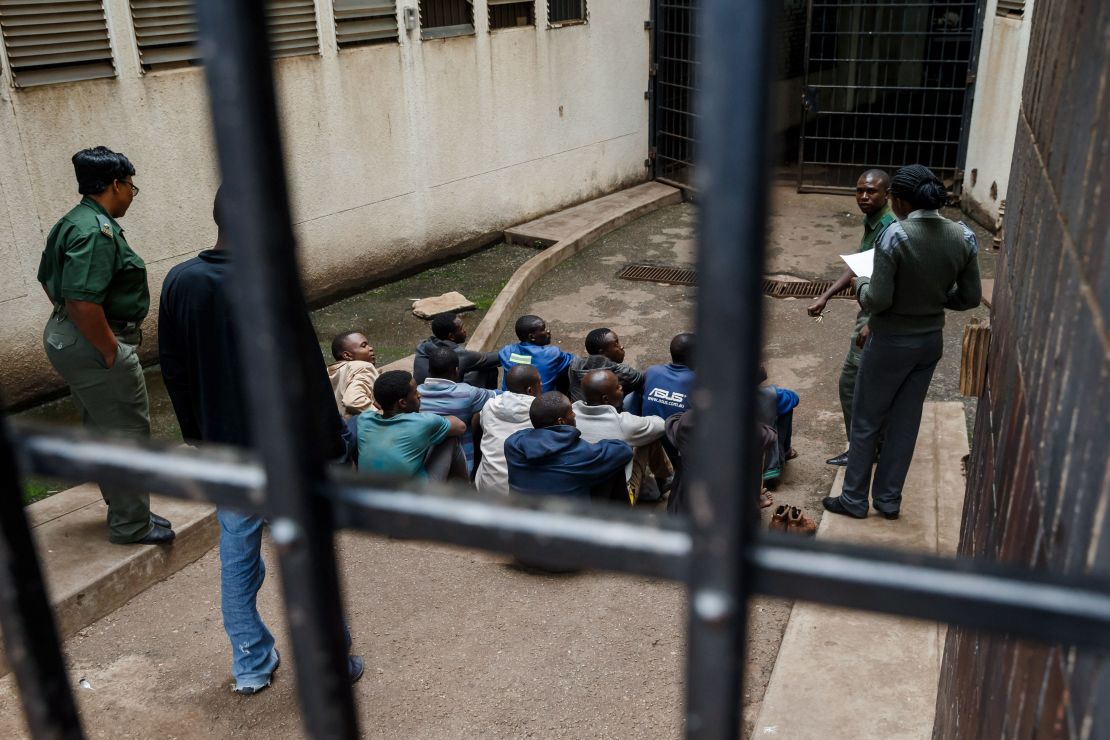Zimbabweans spent most of Friday without internet after the government ordered the country’s biggest mobile operator to shut down service again.
After several hours, networks were restored, but social media platforms remained blocked, Econet Wireless said in a notice to its customers.
It meant that people in Zimbabwe have not been able to access any social media sites such as WhatsApp, Twitter and Facebook throughout the week.
The shutdown comes as the military was accused of committing human rights abuses during a brutal crackdown on protests this week over a massive hike in gas prices.

A spokeswoman for UNHCR, the United Nations Refugee Agency, Ravina Shamdasani, expressed concern Friday over reports of “excessive use of force, including live ammunition” by security forces, and called on the government to “find ways of engaging with the population about their legitimate grievances.”
The United States embassy in Harare also criticized the “disproportionate use of force” in a statement on Thursday, saying it was “alarmed by credible reports that security forces were targeting and beating political activists and labor leaders.”
Days of deadly protests were triggered by President Emmerson Mnangagwa’s announcement of a 150% increase in fuel prices.
Though calm returned to some areas in Harare on Friday, most shops and businesses remained closed with the army and military patrolling the streets.
Meanwhile, activist and pastor Evan Mawarire, who started the popular “This Flag” movement, appeared in court again on Friday after his arrest two days earlier for allegedly “inciting violence on social media,” his lawyer told CNN.
“I cannot tell you how heartbreaking it is. We thought we had a new country and a new way of doing things. None of what I am being accused of is what I have done at all,” Mawarire told reporters before he appeared at a magistrate court in Harare on Thursday.
“I did nothing of that nature. If we have true justice, let’s see it at play.”
Wednesday, security forces shot dead five people and wounded 25 as they battled demonstrators in Harare, Human Rights Watch reported, citing the Zimbabwe Association of Doctors for Human Rights.
Police also opened fire on demonstrators after they set a police station ablaze and barricaded roads with rocks. There was also looting in three cities on the first day of the anti-government protests, Human Rights Watch said.
“Zimbabwe authorities have a duty to maintain security during protests, but they need to do that without using excessive force,” said Dewa Mavhinga, Human Rights Watch Southern Africa director. “Those responsible for using unlawful lethal force should be promptly investigated and held accountable.”
Zimbabwe’s junior minister of information, Energy Mutodi, has dismissed the agency’s allegations as “false.”
“We have seen those false reports. The government is not going to dignify them with any response,” Mutodi told CNN on Thursday.
Zimbabwe’s ailing economy has been battling cash shortages and months of fuel shortages. Mnangagwa said the increase in fuel prices was meant to ease the impact of the fuel shortage.
But citizens, already squeezed by the high cost of living, took to the streets, where they were met with force by Zimbabwe’s security forces in Harare and in the southwestern city of Bulawayo on Monday and Tuesday.
Eyewitness Keith Frymore told CNN a soldier hit him in the face with the butt of his gun during a protest at Warren Park township in Harare on Tuesday.
“He broke my lip and teeth in the process. I hope to get it fixed because most of the hospitals I went to yesterday were closed,” he said. “I have done nothing to deserve this.”
Frymore said he was recovering at a private medical center alongside several protesters assaulted by the army.
James Chunga, an IT specialist, told CNN he and members of his family fled Harare for neighboring South Africa on Wednesday after violence broke out in his neighborhood.
“My family cannot continue to stay in a place where security operatives are beating up and arresting civilians randomly,” Chunga said. “They are everywhere in the area, and you don’t know what might happen to you if you upset them.”

CNN put specific allegations of army brutality to the government again on Friday.
Mutodi, the junior information minister, said: “We have heard and read about the allegations of army assaults, but no one has come up with any credible leads to follow. As government, we want to investigate such reports but that only happens when we get finer details.”
Zimbabwe’s minister of state for national security, Owen Ncube, confirmed there were casualties on Monday but blamed nongovernmental organizations, civil groups, youth and individuals working with opposition group MDC Alliance for instigating the violence.
Journalist Columbus.S. Mahvunga reported from Harare, CNN’s David McKenzie wrote from Johannesburg and Bukola Adebayo wrote from Lagos, Nigeria. CNN’s Brent Swails contributed to this report.





